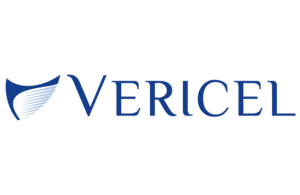 Vericel (Nasdaq:VCEL), a biopharma focused on sports medicine and severe burn care therapies, has a portfolio including the cartilage repair treatment MACI and the burn treatments Epicel and NexoBrid.
Vericel (Nasdaq:VCEL), a biopharma focused on sports medicine and severe burn care therapies, has a portfolio including the cartilage repair treatment MACI and the burn treatments Epicel and NexoBrid.
Focal cartilage defects, which occur in approximately 60% of arthroscopies, can lead to debilitating osteoarthritis if left untreated. Vericel’s flagship product, MACI, tackles this medical challenge head-on by enabling younger, active patients to avoid knee replacements. Harnessing the power of the patient’s own cells to repair cartilage damage, MACI halts the progression to osteoarthritis.
In the realm of burn care, Vericel’s Epicel serves as a permanent skin replacement for patients with severe burns, while NexoBrid is an enzymatic treatment designed to remove dead tissue from burn wounds. In a recent interview, Vericel CEO Nick Colangelo highlighted the company’s unique position in the market, noting the limited competition and significant barriers to entry. These factors, he believes, make Vericel’s products strong contenders to become the standard of care in burn treatment.
The responses have been lightly edited for brevity.
What is Vericel’s primary focus, and what are some of the FDA-approved products they offer?
Colangelo: Our primary focus lies in two areas: advanced cell therapies and specialty biologics. Vericel emerged from Genzyme BioSurgery, which later became Sanofi’s cell therapy and regenerative medicine business. We offer FDA-approved products like MACI, our flagship cartilage repair product, and Epicel, a permanent skin replacement for burn patients with more than 30% total body surface Area burns. Vericel’s portfolio also includes NexoBrid, an orphan biologic product licensed from MediWound, which was approved in December.
These products have significant barriers to entry, with no established generic pathways or biosimilar competition. This provides us with a strong foundation for growth. MACI is specifically designed for treating focal cartilage defects, a serious unmet medical need. Cartilage defects don’t heal on their own. MACI can help prevent patients from progressing to osteoarthritis and partial or full knee replacements.
Can you discuss the need for MACI and the factors driving its growth?
Colangelo: With few other options available, MACI repairs cartilage defects and can last a lifetime, barring any new injuries. This can help patients avoid multiple partial or full knee replacements down the line.
MACI uses a patient’s own cells to fill cartilage “potholes” in the knee, integrating with surrounding cartilage and preventing progression to osteoarthritis. Once regenerated, the cartilage can last a lifetime, unlike knee replacements that typically only last around 10 years.
Could you talk more about the Vericel burn care franchise and the demand for those products?
Colangelo: Epicel is indicated for patients with catastrophic burns of 30% or more Total Body Surface Area. NexoBrid, our newly approved product, offers a less invasive, enzymatic approach to removing dead tissue from burn wounds. It’s a game-changer in burn care and is expected to become the standard of care. Both products serve niche markets but have substantial revenue potential. As there are only 140 accredited burn centers in the country, adding NexoBrid to our sales force offers significant leverage.
Our company is excited because NexoBrid is approved in Europe and has a broader label than in the U.S. You can treat up to 20% Total Body Surface Area. Part of that is you don’t know if the body would build up antibodies to the enzymes. That is something that needs to be examined in clinical studies. But 90% of burns are 20% of body surface areas or less.
It’s a remarkable product that’s far better for patients than traditional treatments. I mean, would you rather have a doctor slice away with a knife or use a topical product that dissolves only dead tissue and leaves healthy tissue behind?
What are the highlights from your recent earnings call?
Colangelo: From a financial standpoint, our growth has been impressive. Since launching, our compounded annual growth rate has been over 20%. We generated about $164.5 million in revenue last year, driven by our main product, which was up 18%. Our company is profitable and cashflow positive, which is unique in our industry.
Investors like to know how we’ll sustain our growth. We are planning a study that plays a role in that. This human factors validation study is expected to support expanding the MACI label to include arthroscopic administration of MACI for cartilage defects. We had some regulatory wins recently, and the FDA agreed to a human factor study instead of a clinical study for our product’s arthroscopic administration. This means we can potentially launch our arthroscopic instruments next year. We’re excited because 90% of surgeons we surveyed expressed interest in an arthroscopic option.
What kind of athletes do you most commonly see using MACI?
Colangelo: We’ve seen patients from various sports and activities, including professional athletes and weekend warriors. It’s a popular treatment option for those who want to stay active and maintain their athletic lifestyles.
Can you talk more about plans to expand the Vericel product portfolio?
Colangelo: We’re focusing on expanding our portfolio by launching new products, lifecycle management around our main product, and exploring its use in other joints like the ankle. We’re also looking at other sports medicine products and potential opportunities in the cell therapy space.